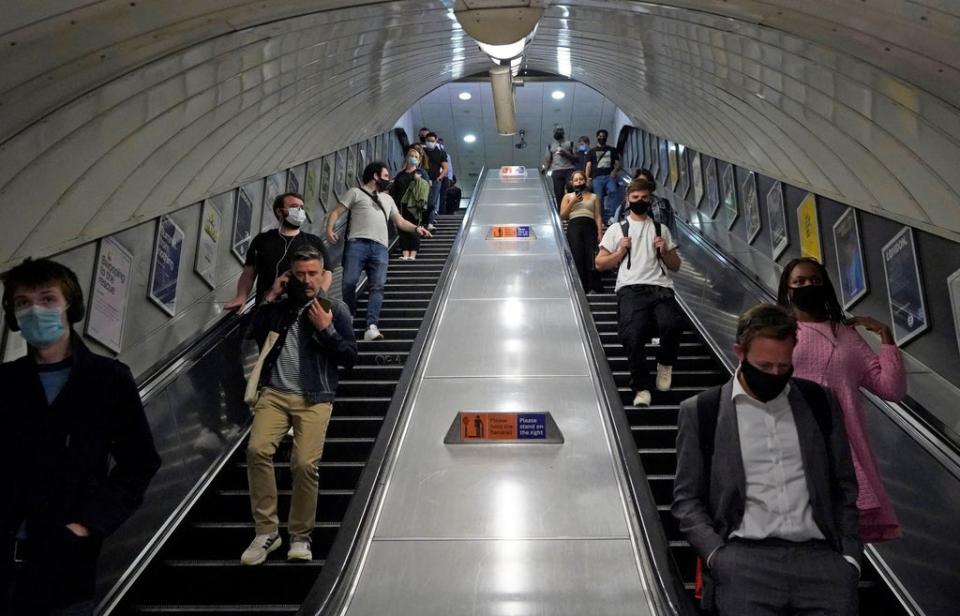Falls on Tube escalators rise as Londoners fear catching Covid if they hold onto hand rails

Passengers are falling down Tube escalators because of a reluctance to hold the hand rail for fear of catching Covid.
London Underground chiefs have reported a spike in accidents — with “intoxicated” passengers celebrating the end of lockdown also to blame.
Twelve deaths or serious injuries have been reported on the Tube between April and June, and 23 on buses — up on the same three-month period last year. London Underground managing director Andy Lord said escalator falls were “our biggest risk from a passenger injury perspective”.
TfL plans to expand a trial, launched last year, that attaches Covid-busting ultraviolet light devices to hand rails to eradicate traces of the virus.
Fear of contracting Covid from shared “touch points” on public transport was one of the biggest fears in the first wave of the pandemic last year. However, TfL introduced an intensive cleaning regime with anti-viral fluids. Repeated testing by Imperial College London experts has failed to find traces of Covid on the network.
TfL chiefs believe “hesitancy holding the hand rail” is behind many falls, some of which are suffered by passengers, often elderly, attempting to place suitcases onto an escalator.
Mr Lord said: “Two of the biggest risks we have are falls on escalators caused by people failing to hold the hand rail. There is an issue with the perception that the hand rail is not clean because of the pandemic.
“We are spending a huge amount of time and money and resources cleaning the hand rail, as well as the UV cleaners that are being steadily rolled out across the entire network. We are looking at what further communications we can do to raise awareness of that.”
Mr Lord added: “The other bigger issue is intoxication. We have seen a spike as the various stages of lockdown have been reduced, with particular spikes initially on Thursday and Friday evenings and then weekends.”
TfL data shows that the number of injuries on stairs and escalators “remains relatively high” and the rate is outpacing the swift return of passengers to the Underground. Stations such as Waterloo, which has 24 escalators, and busier stations in the West End are the most common locations for accidents.
A report to TfL’s safety committee said: “The number of people killed or injured has increased with the return of customers to the network. The rate of injuries which happened on stairs and escalators have remained relatively high. There has also been a slight uplift in the rate of injuries with intoxication a factor.”
A TfL spokesman said 93 escalators had been fitted with UV covid-busting units, with a further 340 devices due to be installed by the end of 2021.
Read More
Travel chaos to hit Heathrow over Christmas as engineering works planned
TfL plans to ban gambling ads following Sadiq Khan request
The Square Mile swings: The beating heart of London is beating again

 Yahoo News
Yahoo News 